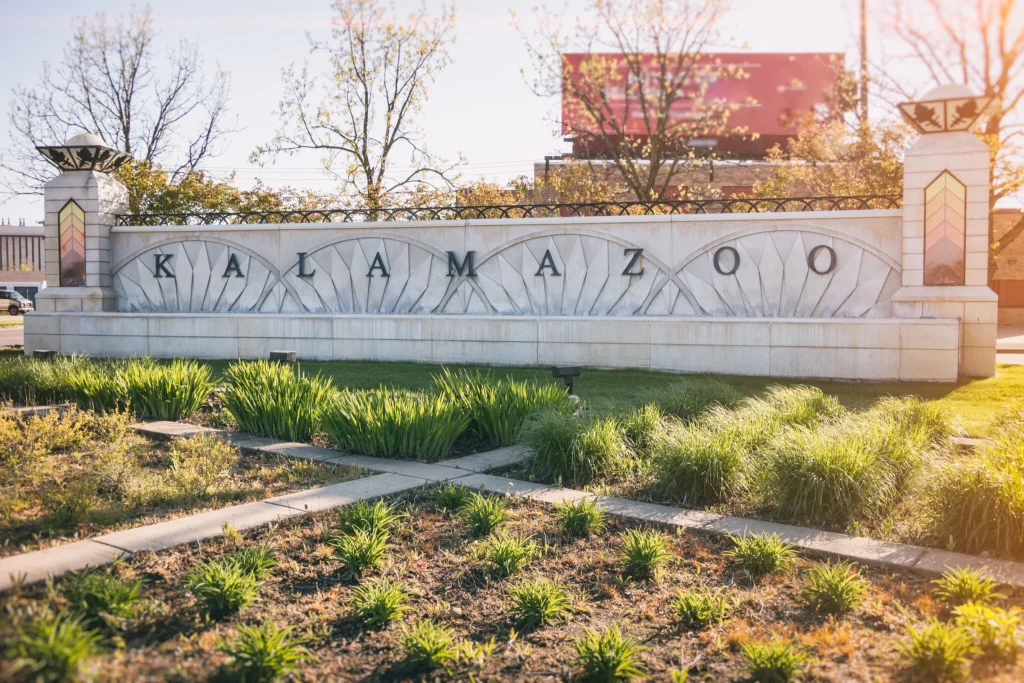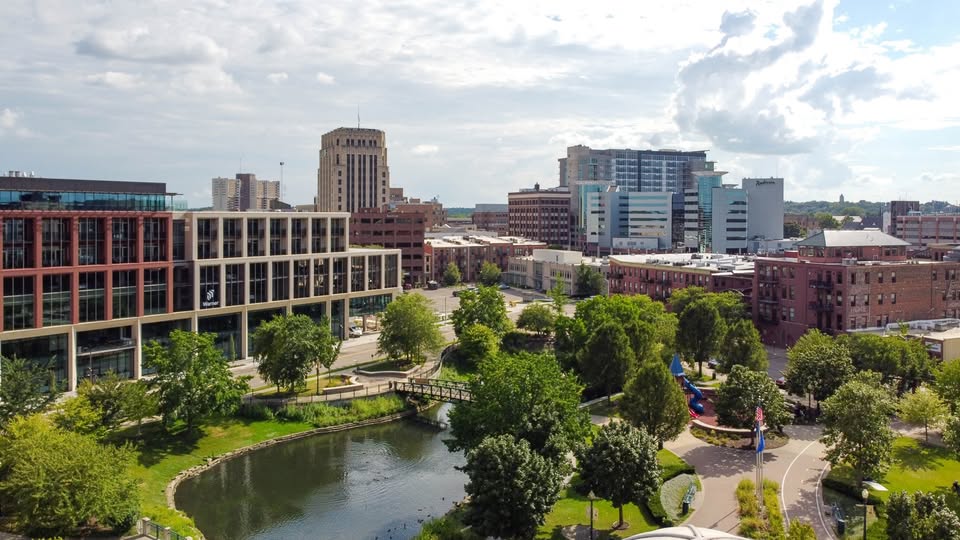Kalamazoo is a city at a crossroads, facing a housing crisis that demands our immediate attention. While we pride ourselves on being a community of generosity, innovation, and opportunity, the stark reality of our housing situation tells a different story. Every day, residents are grappling with unsafe conditions, escalating rents, and landlord retaliation. What’s more, the leaders we look to for solutions are often the same individuals who hold the keys to the housing market itself.
One of the most striking examples of this conflict sits at the center of our city government: Mayor David Anderson.
Most people know Anderson as Kalamazoo’s current mayor and long-time city commissioner, a public figure who presents himself as a community advocate and a steady leader. However, what many do not realize is that he also holds significant influence in the world of public housing. That power raises serious concerns about conflicts of interest, accountability, and the concentration of housing authority in too few hands.
The Network of Power
🔎 Here are the facts:
- Vice President of the LIFT Foundation. David Anderson is not just mayor — he also serves as Vice President of the LIFT Foundation, a nonprofit housing corporation in Kalamazoo. Source: LIFT Foundation Board of Directors
- LIFT owns and manages HUD-backed housing. The LIFT Foundation is not a small community charity. It owns and operates major HUD-backed housing in Kalamazoo, including Interfaith Homes — one of the city’s most visible subsidized housing complexes. Source: CauseIQ
- LIFT developed LodgeHouse. Beyond Interfaith, LIFT also developed and operates LodgeHouse, a former Knights Inn motel that was converted into permanent housing. This project has been publicly celebrated, but it also places a significant portion of the housing stock directly under the control of the mayor’s nonprofit network. Source: Second Wave Media
- Influence on redevelopment projects. As mayor, Anderson has supported major redevelopment projects that funnel tax credits and subsidies into nonprofit housing networks — the same ecosystem in which he plays a direct leadership role. Source: Michigan.gov
- Former Chair of the Kalamazoo County Public Housing Commission. Anderson’s influence doesn’t stop at City Hall or LIFT. He has also chaired the Kalamazoo County Public Housing Commission, giving him a say in housing decisions at multiple levels of government. Source: WKZO
This web of influence blurs the lines between policymakers, landlords, and regulators. When one person sits at the table of government and the boardroom of a housing nonprofit, who is left to represent the tenants?
Why It Matters
At first glance, some might say, “What’s the problem? At least he’s involved in housing.” But the issue is not involvement; it’s the concentration of power.
Leaders who control both housing and policy are not neutral. They are not referees watching the game fairly; they are players on the field, writing the rules while holding the ball.
For tenants, this creates a dangerous imbalance:
- If you live in a building managed by LIFT, the person overseeing your landlord may also be sitting in the mayor’s chair.
- If you are facing retaliation, unsafe conditions, or eviction, the local government you appeal to for fairness is tied to the very organizations acting as landlords.
- Nonprofits that promote themselves as “serving the community” may, in reality, act as landlords, with eviction power and profit motives hidden under a nonprofit label.
This means that the accountability system is broken before tenants even have a chance to speak.
The Real-World Consequences
I know this not only from research, but from lived experience. My time in public housing in Kalamazoo has shown me firsthand how quickly tenants can be silenced, punished, or ignored when they speak up about conditions or mistreatment.
And I am not alone. Since beginning to speak out publicly about my personal experience, other tenants in HUD-backed housing in Kalamazoo have reached out to share their own stories. The themes are consistent: fear of retaliation, unsafe conditions, unanswered complaints, and the sense that the system is rigged against them.
When mayors serve as landlords, tenants are often left without a fair voice in the process.

Beyond Housing: A Power Issue
This is not just a housing issue. It’s a power issue.
When public officials wear multiple hats — such as mayor, nonprofit executive, and housing commissioner — the public loses clarity about whose interests are being served. Are policies being made to protect tenants, or to protect housing networks from scrutiny? Are redevelopment dollars being allocated to projects that meet community needs, or to organizations that already hold disproportionate influence?
In Kalamazoo, this is not an abstract question. It is happening now, and it will shape the future of our city’s housing landscape for decades to come.
Looking Ahead: Accountability at the Ballot Box
As Kalamazoo approaches another election, voters deserve to know who is making housing decisions — and how those decisions affect the most vulnerable among us.
This is not about partisanship. It is about accountability. Tenants deserve leaders who are not tied up in conflicts of interest. Communities deserve transparency about who owns and controls the housing in their vicinity.
The truth is this: when the mayor also sits at the head of a nonprofit landlord, the people lose their watchdog. And when watchdogs turn into landlords, the system stops protecting tenants.
A Call for Justice
At the Kalamazoo Justice Project, we believe housing should be about dignity, fairness, and accountability — not concentrated power. Tenants deserve leaders who stand with them, not above them. We call for justice in our housing system, and we invite you to join us in this fight for justice.
The story of David Anderson is not just about one man. It is about a system that allows political and housing power to merge, leaving ordinary people with nowhere to turn. But it’s also about a city that has the power to choose a different path, one that prioritizes transparency and fairness. When mayors are landlords, the question becomes: who speaks for the tenants? The answer is simple: we all do, by demanding accountability and justice.
— Jennifer L. Dayton
Founder & Executive Director, Kalamazoo Justice Project.
The Kalamazoo Justice Project is a nonprofit organization dedicated to exposing housing injustice and supporting tenants through advocacy, transparency, and truth.
Legal Disclaimer:
The views expressed in this article are based on publicly available information, cited sources, and the author’s lived experience. This content is provided for informational and educational purposes only. It does not constitute legal advice. All individuals and organizations named are referenced in the context of their public roles and responsibilities.
Main Photo courtesy of the City of Kalamazoo

